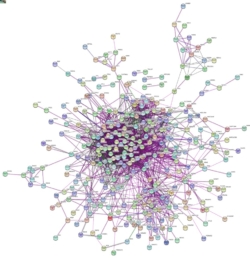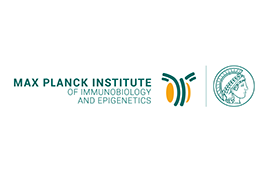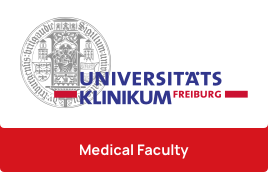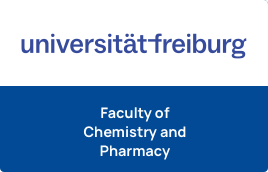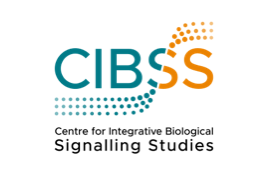Hereditary metabolic diseases are all rare diseases with an incidence < 1:10.000. They generally affect a number of different organ systems and present with significant clinical and biochemical heterogeneity. Metabolic profiling using (non-) targeted metabolomics together with molecular phenotyping identifying genetic determinants and modifiers unravel the complex metabolic pathway interactions resulting in disease.
Ute Spiekerkötter 
Faculty of Medicine and Medical Center – Department of General Pediatrics, Adolescent Medicine and Neonatology
RESEARCH: Inborn errors of metabolism, mitochondrial fatty acid oxidation disorders, risk and severity profiling, pathophysiology and metabolic switches, organ-specific compensation and environmental modifiers, new therapies
METHODS: Molecular and biochemical phenotyping, functional genomics, targeted metabolomics (disease-specific, pathway-specific, multi-pathway), metabolite panels and metabolic labelling, cell and mouse models, clinical studies, experimental research
TECHNOLOGIES: MetaboCF (DFG listed, RI_00507); Advanced biochemical diagnostic unit: UHPLC Exion/Triple Quadrupole Sciex 5500+ MS, Acquity UPLC/Waters Quattro Premier Triple Quadrupole MS, HPLC Waters 2695 with DAD, Biochrom 30 and 30+ Amino Acid Analyzers, Agilent GC-MS systems, UV-Vis detectors and plate readers
Luciana Hannibal 
Faculty of Medicine and Medical Center – Department of General Pediatrics, Adolescent Medicine and Neonatology, MetaboCF Core Facility
RESEARCH: Inborn errors of metabolism, Genetic modifiers of metabolism, Sulfur-metabolism, Redox signalling, Cofactor enzymology and trafficking, Nutrition, Nutritional and Genetic deficiencies of vitamin B12, multiorgan-metabolic integration
METHODS: Metabolic labeling in cell culture, Targeted metabolomic profiling by mass spectrometry, Characterization of pathogenic protein variants, Protein-cofactor interactions, Rapid kinetics by stopped-flow, Biomarker discovery and standardization
TECHNOLOGIES: UHPLC Nexera X2/QTRAP Sciex 6500+ MS, HPLC -TSQ Vantage Triple Quadrupole MS, GC-MS system (7890 GC system coupled to a 5975C mass spectrometer, Agilent), Stopped-Flow with double mixer and dual UV-Vis/Fluorescence detection
Miriam Schmidts 
Faculty of Medicine and Medical Center – Center for Pediatrics and Adolescent Medicine, Pediatric genetics Division
RESEARCH: Human Genetics, Developmental Biology, Signal Transduction, Cell Biology, Ciliopathies, Kidney Diseases, Skeletal defects, Neurodevelopmental Diseases
METHODS: NGS, Gene editing, Transcriptomics, Proteomics (collaboration with Oliver Schilling. Pathology, University Hospital Freiburg), Metabolomics (collaboration with prof. Spiekerkötter), EM (in external collaboration)
TECHNOLOGIES: CRISPR/Cas gene editing vectors, NGS
Anna Köttgen 
Faculty of Medicine and Medical Center – Institute of Genetic Epidemiology
RESEARCH: Genetic determinants of Metabolite Levels, Metabolite Transport Proteins, Metabolite handling in Kidney, Inborn Errors of Metabolism, Complex metabolic Diseases, Pharmaco-metabolomics
METHODS: Population-scale genetic screens, whole-exome sequencing, multi-Omics data integration (e.g., metabolomics and genomics), non-targeted metabolomics by MS, statistical data analysis of (non-)targeted MS and NMR metabolomics, pathway analysis
